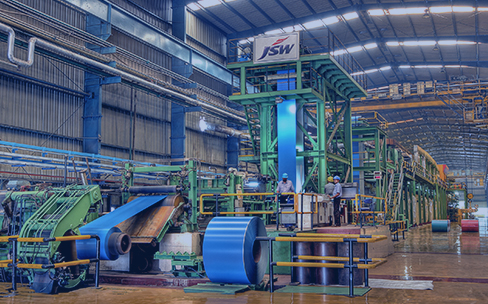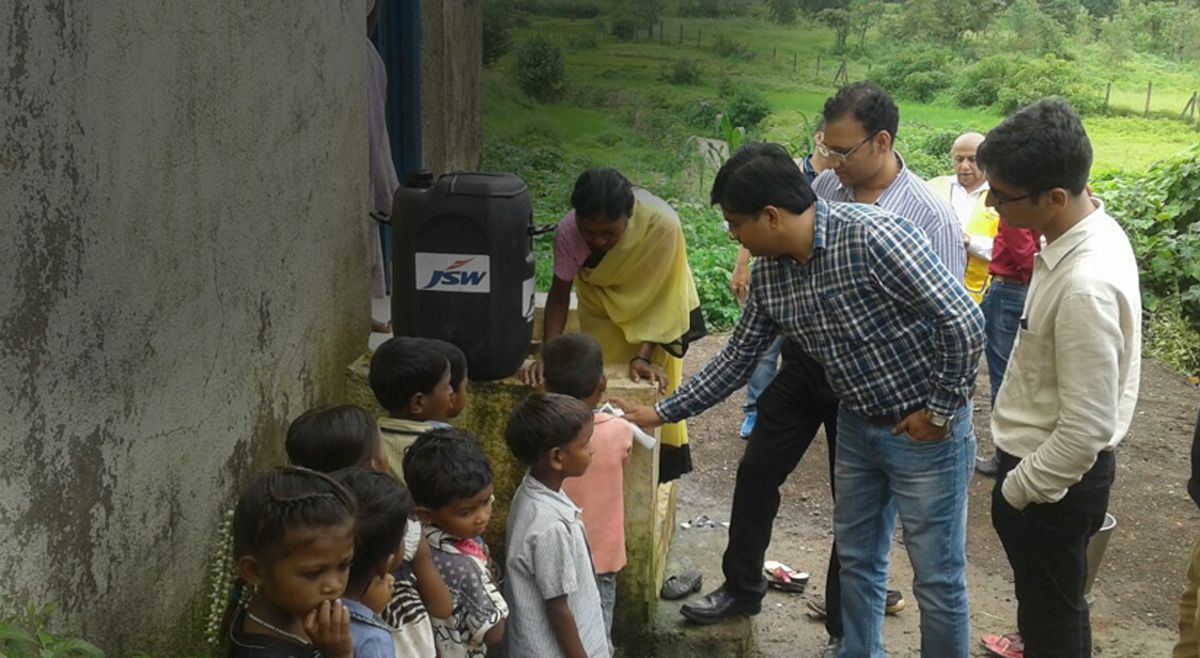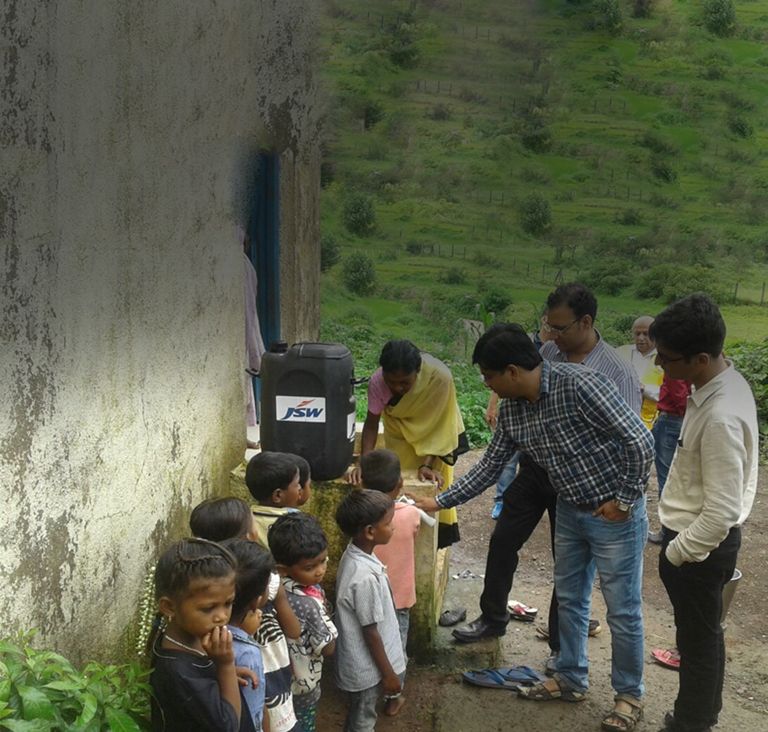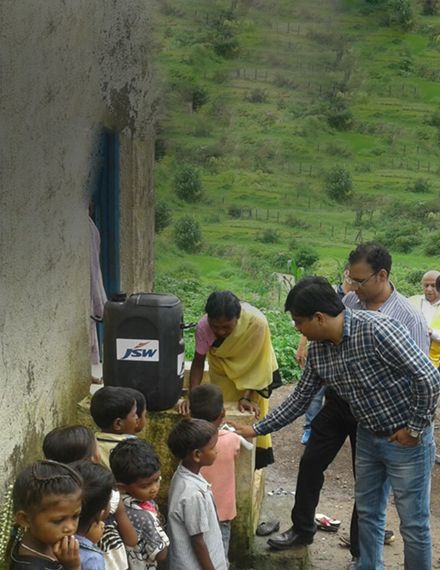JSW Tarapur Employees Set Up Hand Wash Stations for Over 300 Anganwadis in Palghar District of Maharashtra
Over last one year, our company decided to set up several new programs as part of its IDEA (Integrated Development Through Employees Association) Campaign. These programmes are designed to address the problem of malnutrition in Palghar District of Maharashtra.
Through IDEA initiative, employees of JSW Tarapur, participate in interventions in the CSR operational areas of the company. With programs in the areas of health, growth monitoring and promotions, agriculture, sports development etc., this campaign is a win-win approach. While employees get to learn various aspects such as leadership, behavior and capabilities development in challenging environment, the communities benefit from strategic planning, operational improvements and communication and marketing strategies and materials provided by the volunteers.
JSW is proud of the impact and social benefits created by the volunteering of its employees. Strong alignment with culture and values and a focus on skill development and learning, is one of the objectives behind creating the IDEA program. The volunteers seem to understand the larger benefits of the company’s CSR initiatives, thereby helping them re-evaluate the relevance of their own work and contribution, while also changing their attitudes toward their daily job.
Let’s look at the recently launched Wash & Wash Malnutrition Campaign, which was devised and conceptualised by the employees of JSW – Tarapur Works for Anganwadi Centers (AWC), located in the Jawhar Taluka of Palghar District in Maharashtra. This case study gives you an insight into how our volunteers, staff and beneficiaries are transforming the lives and changing communities across the company’s operational areas.
The Problem
Many Anganwadi Centers (AWCs) in the Palghar district don’t have a water tank, thereby forcing the helpers or Anganwadi Sevikas, to travel a minimum distance of 1 to 2 Km, almost daily to fetch water for drinking and other use. During summer, the problem worsens as the scorching heat makes it impossible for the sevikas to take on the physically grueling task of carrying water to the centre. The absence of water either for drinking or washing hands not only affects the functioning of the centre but also the health and life of the children (in the age group of 0-6 years) who spend the whole day there. Global studies have shown that hand washing at critical times such as before eating, and after using the toilet can reduce diarrhea rates by almost 40 per cent. In India, 400,000 children die every year due to diarrhea alone, clearly calling for an increased awareness on the importance of washing hands, especially in AWCs, which are vulnerable to water shortage.

The Solution
Under the IDEA campaign, JSW’s employee volunteers, decided to raise awareness on the importance of washing hands every day with soap, among the helpers and children at the Anganwadi centres, located in remote tribal areas. Expanding further, the volunteers conceptualized, designed, and built Hand Wash Stations that were placed at the centers.
Created entirely by JSW employees after an intense on-ground research, these stations were built in house: using raw material supplies, good quality material for better durability, replicability and easy to use models. With a storage capacity of water that would be sufficient for two days, these tanks, supported by JSW have saved time of AWC helpers, at least every alternate day to fetch water and seen rise in demand from other centers as well. Employees believe that through this simple initiative of setting up hand wash stations at AWCs, they could prevent one out of four deaths due to water borne diseases among the children, who already suffer from malnutrition.

The Impact
With the support from District Collector, ZP CEO, CDPO and all local administrations the initiative has reached around 333 AWC’s of Jawhar Taluka, touching close to 15000 children. As one of the Anganwadi Sevikas explains, “Most of the times children forget to wash their hands, so we have made it a point to accompany all of them before any food/meal. In the long run, we are sure that washing hands will become a habit. Before we got the hand wash stations at the centre, there used to be a lot of absenteeism because of illness, but now not so much."

What Next?
The simple act of washing hands and building a better hygiene infrastructure at the Anganwadi level can help save one third of children in India from diseases such as: diarrhea, intestinal worms, respiratory infections, and other diseases that can be avoided by improved hygiene. Following the success of the first phase of volunteering, employees of JSW – Tarapur Works have set a personal target to cover 1000 AWC’s in the Palghar district in the next one year. This will not only help the company’s wider goal of eliminating malnutrition in the region, but also curb the mortality rates in what is known to be one of the most vulnerable areas in the country. Further, JSW is going to carry out a special study on Hand wash stations and its impact on attendance and change in health records or reduction in water-borne diseases.
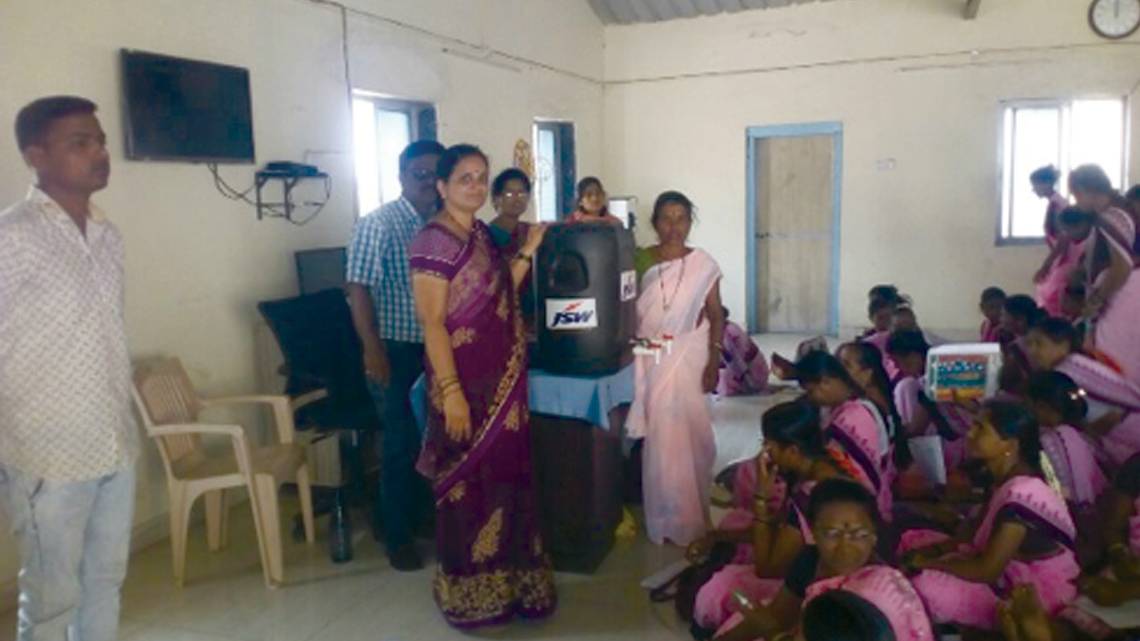
JSW – Tarapur’s efforts to spread the word on hand wash, are supported by the other line of volunteers from JSW cement, who are working toward making water accessible for the villagers. While one is closing the gap on health issues, the other is doing so by facilitating infrastructure to bridge the distance.
About IDEA
